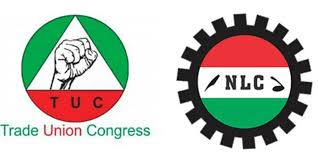
Analysts link projection to strong investor confidence after oversubscribed $2.3bn Eurobond issuance…
Nigeria’s foreign exchange reserves are projected to climb to $45 billion by the end of 2025, buoyed by growing investor confidence following the country’s successful $2.3 billion Eurobond issuance, according to investment and research firm CardinalStone.
In its latest Macroeconomic Update released after the bond offering, CardinalStone said the strong demand for the Eurobond which achieved a 5.5x oversubscription, underscores renewed optimism about Nigeria’s economic outlook.
“The Federal Government of Nigeria returned to the international debt market with a $2.3bn Eurobond offer. Investors’ appetite was strong, with total bids exceeding $12.7bn, translating to an impressive 5.5x bid-to-offer ratio,” the firm noted.
The Eurobond carried coupon rates of 8.62% and 9.13%, depending on maturity tranches. According to CardinalStone, the oversubscription was largely driven by recent credit rating upgrades from major global agencies, which have improved perceptions of Nigeria’s sovereign risk profile and strengthened its standing in the international capital market.
Eurobond Inflows to Boost Reserves and Naira Stability
CardinalStone projected that the Eurobond proceeds would significantly improve Nigeria’s external reserve position, supporting naira appreciation and reducing pressure on the foreign exchange market.
“This development bodes well for FX dynamics, particularly in supporting reserve accretion and naira appreciation,” the report stated.
“We project 2025 FX reserves to reach $45.0bn by the end of the year.”
The firm added that the new Eurobond issuance would not alter its 2025 debt outlook, as the borrowing had already been incorporated into prior fiscal projections. A portion of the proceeds, it said, would be used to refinance maturing Eurobonds, notably the $1.1bn issue due November 21, 2025 and bridge budgetary gaps.
CardinalStone estimated Nigeria’s year-end public debt to reach ₦166.7 trillion, equivalent to 42.2% of GDP.
Comercio Partners Cautions on FX Risk
In a separate commentary, investment firm Comercio Partners described the Eurobond success as a “positive signal” for Nigeria’s fiscal outlook but warned that the benefits could be undermined if exchange rate instability resurfaces.
“The inflow boosts external reserves and provides fiscal breathing space,” Comercio said.
“However, it also raises exposure to FX risk and increases interest burdens in hard currency. Renewed volatility could weaken investor sentiment and amplify debt-servicing costs as naira depreciation inflates external obligations.”
Nigeria’s Debt Profile and Fiscal Outlook
According to the Debt Management Office (DMO), as of June 30, 2025, Nigeria’s total public debt stood at ₦152.4 trillion ($99.66 billion), comprising $46.98 billion (47%) in external debt and $52.67 billion (53%) in domestic obligations.
The DMO confirmed that proceeds from the Eurobond sale will support the 2025 federal budget and refinance part of Nigeria’s maturing foreign debts, including the $1.118 billion Eurobond due later in the year.
While Nigeria’s debt-to-GDP ratio remains below the 40% sustainability threshold, analysts continue to flag the country’s high debt-service-to-revenue ratio above 40%, as a major constraint on fiscal flexibility and vulnerability to external shocks.
Global Banks, Local Partner on Eurobond Deal
The international bookrunners for the transaction were Citi (Billing and Delivery), Goldman Sachs International, J.P. Morgan, and Standard Chartered Bank, with Chapel Hill Denham serving as the sole Nigerian bookrunner.
Last week, the National Assembly approved President Bola Tinubu’s request to raise $2.35 billion in foreign loans to finance the 2025 budget deficit and refinance maturing Eurobonds, alongside plans for a $500 million sovereign Sukuk to be issued in the international capital market.



